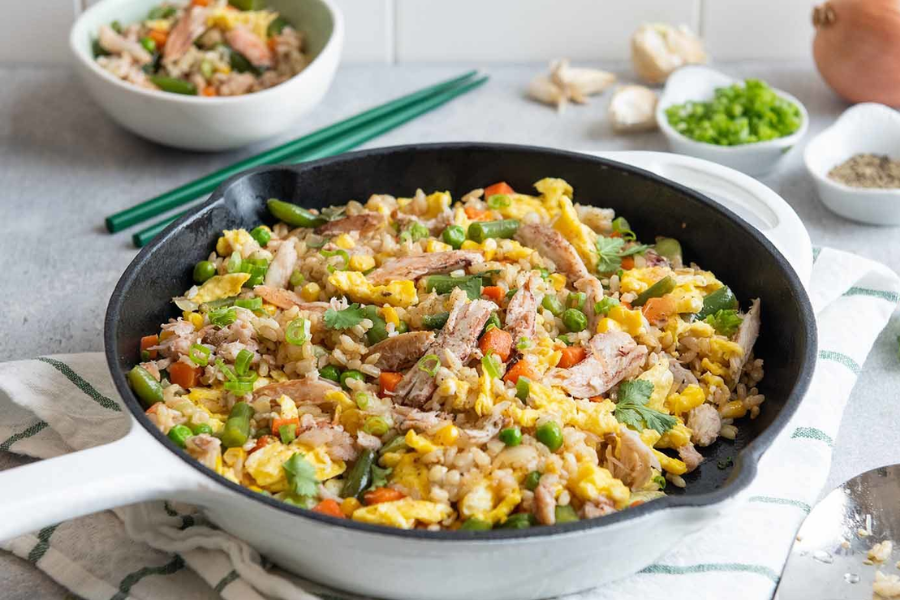Crossword puzzles captivate millions with their unique blend of mental challenge and wordplay, and few are as popular or prestigious as the New York Times Crossword. It’s not just a puzzle—it’s a cultural icon, adored by word enthusiasts of all ages. These puzzles test your vocabulary, cultural knowledge, and often your lateral thinking skills. Each day brings a fresh set of clues, some simple, some deviously complex, leaving solvers both entertained and mystified. Among these tantalizing teasers, some clues spark particular intrigue and curiosity. One such example is “Food Writer Rosie,” a phrase that has sent many solvers diving deep into their memories, knowledge of food journalism, and even puns.
Why Crossword Puzzles Are So Engaging
Before we delve into the specifics of the “Food Writer Rosie” clue, it’s worth understanding what makes crosswords such a compelling pastime. At their core, crossword puzzles are games of wit, intellect, and cultural savvy. They provide an unmatched sense of achievement when all those blank squares finally fill with correct answers.
The New York Times Crossword stands out for its challenging wordplay, with clues that require not only straightforward knowledge but also abstract thinking and a knack for interpreting puns or double meanings. This adds an element of adventure to solving them. Each clue is a breadcrumb in a complex puzzle, designed to make your brain work in fascinating ways. It’s this mix of knowledge, logic, and occasional humor that keeps people coming back for more.
The Intrigue Behind “Food Writer Rosie”
The clue “Food Writer Rosie” is one of those entries that seem simple at first but quickly reveal themselves to be anything but. On the surface, it appears to be asking for a straightforward name—likely that of a food writer named Rosie. However, anyone familiar with the style of the New York Times Crossword knows better. Clues are rarely this simple and often carry additional layers of meaning, drawing on puns, historical references, or cultural knowledge.
So, who or what could “Rosie” represent in this context? It turns out that deciphering this clue requires not only familiarity with the culinary world but also an understanding of the broader implications and historical significance of the name.
A Dive Into Food Writing and the Culinary Scene
To appreciate the complexity of this clue, it helps to know more about food writers and their impact on both culture and consumer habits. Food writers are journalists, critics, and authors who explore the culinary landscape, reviewing restaurants, writing cookbooks, and even shaping public opinion on ethical eating. Some food writers become household names, wielding significant influence over what and how we eat.
Names like Julia Child, Anthony Bourdain, and Ruth Reichl are often at the forefront of people’s minds when considering influential food writers. But what about someone named Rosie? If you are drawing a blank, you’re not alone. This clue taps into a more nuanced and perhaps lesser-known part of food culture and history.
Interpreting Crossword Clues: Literal Versus Figurative
Solving a crossword puzzle is not always about having a vast vocabulary; it often demands creative thinking. The creators of the New York Times Crossword are masters at crafting clues that require you to think outside the box. Sometimes, a clue like “Food Writer Rosie” isn’t asking for a literal answer. Instead, it could be leading you toward something more abstract or thematic.
Crossword enthusiasts have learned to approach such clues with both skepticism and an open mind. Could “Rosie” refer to a literal person in the food world, or is it a clever play on words? Puzzles often feature misleading hints or require interpreting words in a non-literal way, which adds a delightful complexity to the solving process.
Who Is “Rosie,” Really?
If the clue “Food Writer Rosie” has stumped you, it’s essential to consider various angles. First, think about the possibility that “Rosie” could be a name associated with activism in the food industry. In this case, “Rosie” might not be a prolific author in the conventional sense but rather a figure connected to the concept of food ethics or food policy reform.
This brings us to a pivotal realization: sometimes, the key to understanding a crossword clue lies in thinking historically or socially, rather than just literally. While many people might expect an answer that highlights a celebrity chef or a mainstream food writer, the answer could relate to something broader, like a movement or a call to action.
The Clever Reveal: “BOYCOTT”
So, after much contemplation and cross-referencing, what is the answer to this elusive clue? The correct response is “BOYCOTT.” At first glance, this seems disconnected from a simple food writer, but the word has a powerful connotation. The choice of “BOYCOTT” as the answer relates to food activism and efforts to raise awareness about sustainable and ethical food practices. In this context, Rosie could be a stand-in for a figure who has encouraged consumers to reconsider their eating habits, focusing on issues like fair trade, ethical sourcing, or environmental sustainability.
The word “BOYCOTT” is loaded with historical significance. Boycotting has long been used as a form of protest, and in the world of food, it often targets companies or practices deemed unethical. This adds a layer of social consciousness to the clue, transforming it from a simple word puzzle into a statement about the influence of food writers and activists on public opinion.
The Broader Meaning Behind Crossword Clues
The beauty of crossword puzzles lies in their ability to educate, challenge, and entertain simultaneously. A clue like “Food Writer Rosie” demonstrates how puzzles can tap into broader cultural themes, requiring solvers to think critically and draw on their awareness of social and historical issues. It’s a reminder that words carry meaning beyond their dictionary definitions and that puzzles are often a reflection of the world around us.
The answer “BOYCOTT” also serves as a commentary on the power of choice. In a world where food production practices can have global consequences, decisions about what we eat are more impactful than ever. Food writers like Rosie—real or symbolic—serve as catalysts for these conversations, urging us to be mindful of our consumption habits.
Tips for Tackling Tricky Crossword Clues
Faced with challenging clues like this, how can you improve your crossword-solving skills? Here are a few tips:
- Expand Your Cultural Knowledge: The more you read and learn about various topics, the better equipped you’ll be to handle complex clues. Explore subjects like literature, history, and pop culture to give yourself an edge.
- Think Creatively: Don’t always believe hints at face value. Consider puns, wordplay, and thematic connections. Don’t forget that the answer might not be obvious.
- Cross-Reference Letters: Use intersecting words to your advantage. Sometimes, filling in surrounding answers will provide the breakthrough you need.
- Enjoy the Journey: Part of the joy of crosswords is the process of discovery. Even if you don’t solve every puzzle right away, you’ll learn and grow with each attempt.
Conclusion
The New York Times Crossword continues to be a beloved pastime because it challenges us in unexpected ways. Clues like “Food Writer Rosie” highlight the puzzle’s depth, requiring solvers to dig deeper into their understanding of language and culture. While the answer “BOYCOTT” may not have been what you initially expected, it serves as a testament to the power of words and their ability to spark meaningful reflection.
Next time you find yourself scratching your head over a seemingly simple clue, remember that crosswords are about more than just words. They’re about stories, connections, and the thrill of the solve. Happy puzzling! glamourcrunch.com



